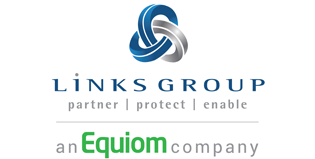The fast-approaching 30th June 2016 deadline for SME and micro SME companies (that have less than 100 employees) to implement medical coverage for staff in line with the Dubai health insurance Law No. 11 has been highly publicised in the media of late. The law, which requires compulsory medical insurance coverage for all Emiratis and expats in Dubai, including their dependents, encompasses all economic areas of the emirate including free zones.
Larger employers with more than 100 staff members must already have in place medical insurance that is in line with the 2014 and 2015 requirements. Much media coverage has focused on the third and final phase of the rollout affecting SME employers who must have medical insurance arrangements in place no later than 30th June 2016. If not, they face penalties and additional fines for non-compliance when obtaining or renewing a visa as there will now be a system to track that their employees have valid medical insurance.
This step by the Dubai leadership is aligned with Abu Dhabi’s healthcare initiatives however, a key difference between the laws of the two emirates is that in Dubai employers are not required to provide coverage for the dependents of their employees. All staff members who sponsor dependents in the country – including family members and domestic workers – must have health insurance cover in place; but employers are not required to provide this for them.
From a talent management and retention perspective, including coverage for an employee’s family members could be considered a valuable benefit. However, companies will need to examine how this would impact their respective bottom lines to determine the feasibility of providing this perk to employees; and they will need to do this while taking into consideration rules surrounding coverage – for example, if a company offers to insure an employee’s children at no extra cost, this cannot be on the basic DHA (Dubai Health Authority) outlined medical plan.
As a part of the process for controlling standards, 44 insurance companies have been awarded Health Insurance Permits (HIP) and are allowed to sell or administer health insurance products in Dubai. These products must meet or exceed an Essential Benefits Plan (EBS) published by the DHA which outlines the minimum level of benefits that any plan should entail. Health insurance is available to everyone with a gross monthly salary above AED 4,000 per month – employees classed as higher salary band (HSB) staff.
The DHA has also selected 7 companies who have undergone an additional standards review and been awarded Participating Insurer (PI) status; and who are allowed to sell the Essential Benefits Plan (EBP) products targeted specifically for lower salary band (LSB) workers, who earn a gross salary of AED 4,000 or less per month. The goal of the process is not to unduly burden sponsors financially but to allow them to provide adequate cover at a reasonable cost, and therefore the premiums for these EBP packages are ranged between AED 500 to 700 per person, per year.
Of course, there are differences amongst the packages and the minimum packages may be more restrictive in terms of number of participating hospitals and clinics; territorial coverage; and added benefits such as dental coverage and wellness options. Therefore, employers will need to consider the needs of the business and the work profiles of the staff segments to be covered before going to market to research and set in place a ‘fit for purpose’ offering.
From the employee perspective, employees should be aware they are required to be provided with medical coverage that meets outlined DHA guidelines as a minimum, and the cost of this compulsory benefit cannot be deducted from an employee’s salary, neither can employers legally reduce a staff member’s salary to offset the cost of insurance. For SME employers who may already have existing coverage in place that does not meet the DHA prescribed minimum guidelines, they will need to restructure their existing arrangements to meet this criteria by the first renewal date (and no later than 12 months) after the required implementation deadline.
This move on the part of the Dubai Government will result in Dubai residents having at least a minimum level of medical coverage, which includes access to physicians, lab and surgical procedures, emergency care and maternity cover. Furthermore, the process of rolling out the Dubai health insurance Law No. 11 is coming to a close just as Dubai launches its five-year strategy to improve health services in the emirate through public and private sector collaboration; and to establish the emirate as a primary medical destination.
This strategy is focused not only on expanding current healthcare infrastructure and improving the quality of healthcare service in the emirate, but may also present new avenues and opportunities for investors in areas such as medical tourism, hospital and specialized services expansion.


